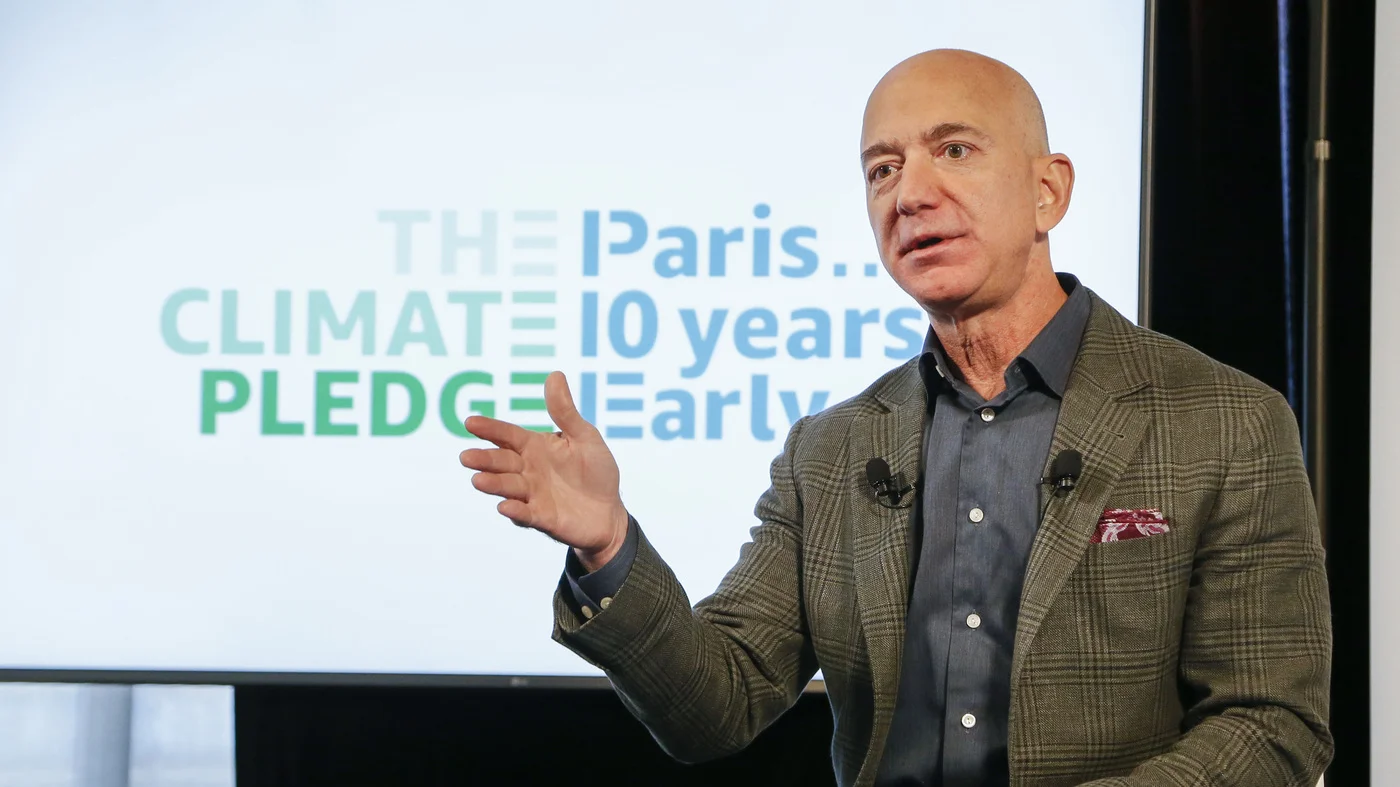More Than 100 Companies Have Signed The Climate Pledge
Over 100 companies have signed The Climate Pledge, according to Amazon and Global Optimism. Alaska Airlines, Colgate-Palmolive, Heineken, PepsiCo, and Visa are among the latest to add their names to the list of companies committed to achieving net zero emissions by 2040.
It’s part of a growing trend of corporations announcing climate targets in line with or ahead of those established by the Paris Agreement.
In 2021 alone, 75 new companies have joined The Climate Pledge — bringing the total to 108 (and counting).
With the addition of these organizations, the Pledge now represents companies across 25 industries and 16 countries — pointing to widespread adoption of ambitious, corporate-led climate targets as the new norm. Today, Pledge signatories generate over $1.4 trillion in global annual revenues and have more than 5 million employees.
The Climate Pledge was co-founded by Amazon and Global Optimism in 2019. The Pledge calls on companies and organizations to reach the Paris Agreement target of net zero carbon 10 years early, in 2040.

Source: Amazon
Companies that sign the Pledge commit to three areas of climate action. First, they must measure and report greenhouse gas emissions on a regular basis. They also agree to implement carbon elimination strategies in line with the Paris Agreement, such as renewable energy and materials reductions. Finally, they must neutralize any remaining emissions with credible offsets in order to achieve net zero annual emissions by 2040.
Although companies commit to the same set of goals, each company takes its own approach toward meeting these goals. Co-founder Amazon, for example, has committed to powering its operations with 100% renewable energy by 2025. Mercedes-Benz, on the other hand, has committed to making 25% of its cars fully electric by 2025.
Pressure from all sides
So what’s driving companies like Amazon and Mercedes-Benz to make such bold promises?
For starters, corporations are recognizing that their reputation is at stake. Many companies have already established carbon reduction goals internally. Joining The Climate Pledge is a way to publicly declare their commitment to climate action alongside other well-known brands.
The rush to join The Climate Pledge also comes amid growing pressure from investors to address the climate crisis. Carbon intensity is increasingly seen as a risk to investor portfolios, so achieving net zero ahead of schedule signals to investors that a company is well-positioned to survive in the future low-carbon economy.
In January, President Biden moved to have the United States rejoin the Paris Agreement. The Paris Agreement sets out a global framework to limit global warming to 1.5°C by bringing carbon emissions to net zero by 2050. But while the US is now back in the treaty, the absence of a federal plan to achieve carbon neutrality has left many companies scrambling to set their own targets.
Joining The Climate Pledge provides access to shared resources and expertise across teams, industries, and NGO partners. This includes shared access to technologies and innovations, as well as the potential to co-invest in decarbonization and carbon sequestration projects. It also provides access to shared learning platforms, giving signatories the tools to transform their operations.
As the race to net zero continues, we expect to see more companies join The Climate Pledge and publicize their commitment to climate action.
Next, see why sustainability bonds are poised to become the next big thing — and what it means for EHS professionals.
